Nate Derbinsky
The Boundary Forest Algorithm for Online Supervised and Unsupervised Learning
May 12, 2015



Abstract:We describe a new instance-based learning algorithm called the Boundary Forest (BF) algorithm, that can be used for supervised and unsupervised learning. The algorithm builds a forest of trees whose nodes store previously seen examples. It can be shown data points one at a time and updates itself incrementally, hence it is naturally online. Few instance-based algorithms have this property while being simultaneously fast, which the BF is. This is crucial for applications where one needs to respond to input data in real time. The number of children of each node is not set beforehand but obtained from the training procedure, which makes the algorithm very flexible with regards to what data manifolds it can learn. We test its generalization performance and speed on a range of benchmark datasets and detail in which settings it outperforms the state of the art. Empirically we find that training time scales as O(DNlog(N)) and testing as O(Dlog(N)), where D is the dimensionality and N the amount of data,
* 7 pages, 4 figs, 1 page supp. info
Proximal operators for multi-agent path planning
Apr 07, 2015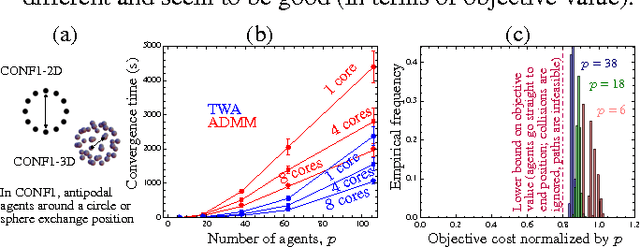
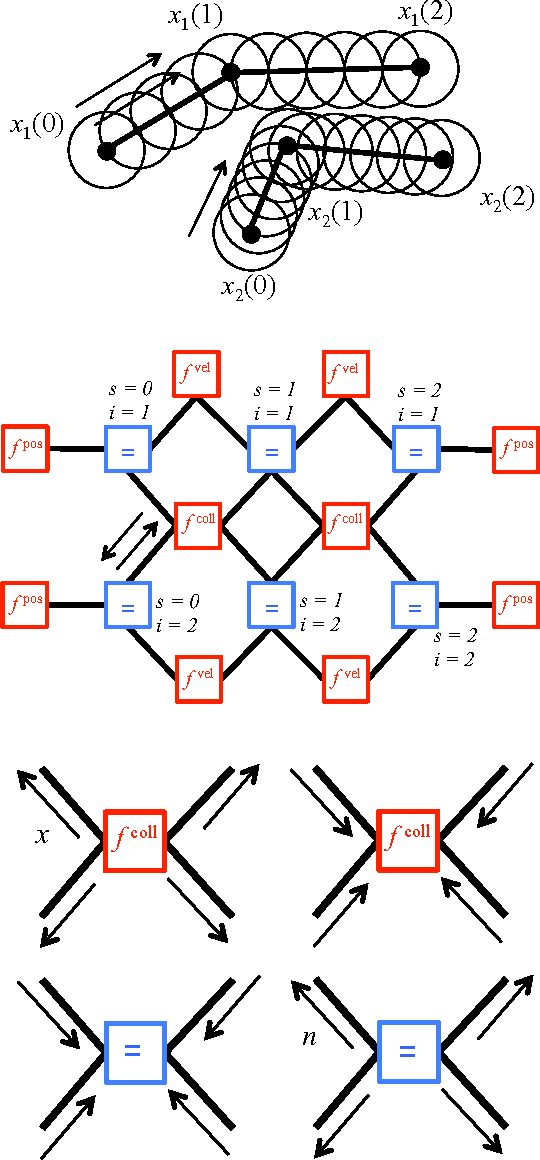
Abstract:We address the problem of planning collision-free paths for multiple agents using optimization methods known as proximal algorithms. Recently this approach was explored in Bento et al. 2013, which demonstrated its ease of parallelization and decentralization, the speed with which the algorithms generate good quality solutions, and its ability to incorporate different proximal operators, each ensuring that paths satisfy a desired property. Unfortunately, the operators derived only apply to paths in 2D and require that any intermediate waypoints we might want agents to follow be preassigned to specific agents, limiting their range of applicability. In this paper we resolve these limitations. We introduce new operators to deal with agents moving in arbitrary dimensions that are faster to compute than their 2D predecessors and we introduce landmarks, space-time positions that are automatically assigned to the set of agents under different optimality criteria. Finally, we report the performance of the new operators in several numerical experiments.
A message-passing algorithm for multi-agent trajectory planning
Nov 18, 2013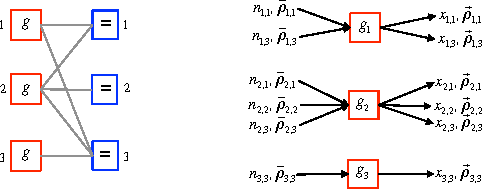

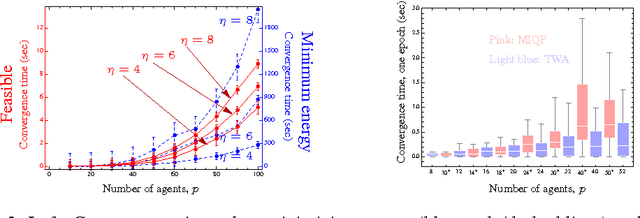
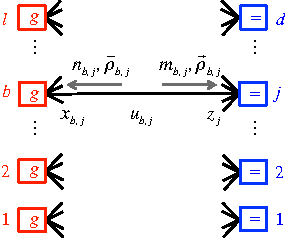
Abstract:We describe a novel approach for computing collision-free \emph{global} trajectories for $p$ agents with specified initial and final configurations, based on an improved version of the alternating direction method of multipliers (ADMM). Compared with existing methods, our approach is naturally parallelizable and allows for incorporating different cost functionals with only minor adjustments. We apply our method to classical challenging instances and observe that its computational requirements scale well with $p$ for several cost functionals. We also show that a specialization of our algorithm can be used for {\em local} motion planning by solving the problem of joint optimization in velocity space.
Methods for Integrating Knowledge with the Three-Weight Optimization Algorithm for Hybrid Cognitive Processing
Nov 16, 2013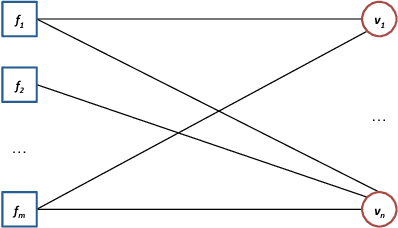

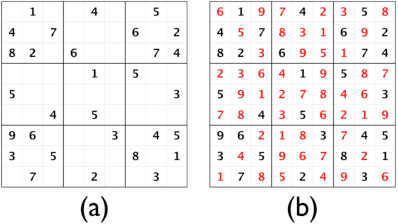
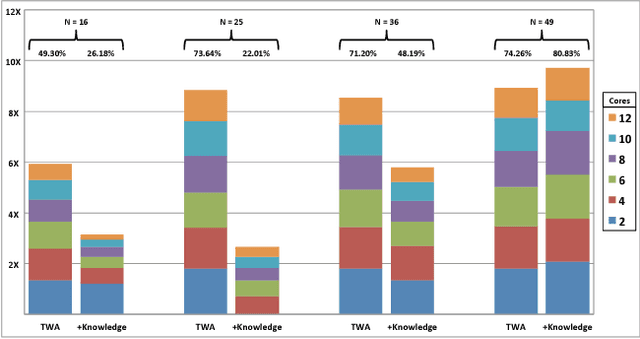
Abstract:In this paper we consider optimization as an approach for quickly and flexibly developing hybrid cognitive capabilities that are efficient, scalable, and can exploit knowledge to improve solution speed and quality. In this context, we focus on the Three-Weight Algorithm, which aims to solve general optimization problems. We propose novel methods by which to integrate knowledge with this algorithm to improve expressiveness, efficiency, and scaling, and demonstrate these techniques on two example problems (Sudoku and circle packing).
An Improved Three-Weight Message-Passing Algorithm
May 08, 2013



Abstract:We describe how the powerful "Divide and Concur" algorithm for constraint satisfaction can be derived as a special case of a message-passing version of the Alternating Direction Method of Multipliers (ADMM) algorithm for convex optimization, and introduce an improved message-passing algorithm based on ADMM/DC by introducing three distinct weights for messages, with "certain" and "no opinion" weights, as well as the standard weight used in ADMM/DC. The "certain" messages allow our improved algorithm to implement constraint propagation as a special case, while the "no opinion" messages speed convergence for some problems by making the algorithm focus only on active constraints. We describe how our three-weight version of ADMM/DC can give greatly improved performance for non-convex problems such as circle packing and solving large Sudoku puzzles, while retaining the exact performance of ADMM for convex problems. We also describe the advantages of our algorithm compared to other message-passing algorithms based upon belief propagation.
 Add to Chrome
Add to Chrome Add to Firefox
Add to Firefox Add to Edge
Add to Edge